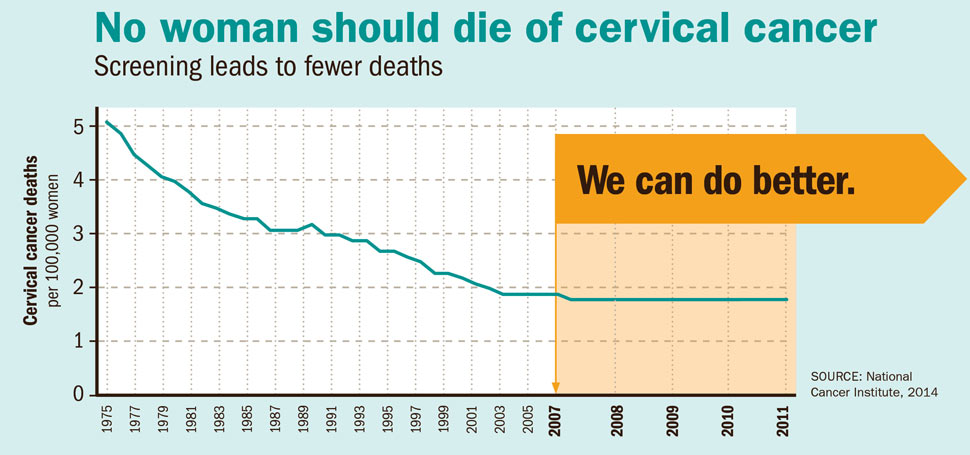January is Cervical Health Awareness Month, and we at the Family Health Clinic want you to know that there’s a lot you can do to prevent cervical cancer.
HPV (human papillomavirus) is a very common infection that spreads through sexual activity. About 79 million Americans currently have HPV, but many people with HPV don’t know they are infected.
HPV is also a major cause of cervical cancer. Each year, more than 11,000 women in the United States get cervical cancer.
Here is the good news:
- The HPV vaccine (shot) can prevent HPV.
- Regular screening tests (called Pap tests) and follow-up care can often prevent cervical cancer
I n honor of National Cervical Health Awareness Month, the Family Health Clinic wants to encourage women to start getting regular Pap tests at age 21 and parents to make sure pre-teens get the HPV vaccine at age 11 or 12.
n honor of National Cervical Health Awareness Month, the Family Health Clinic wants to encourage women to start getting regular Pap tests at age 21 and parents to make sure pre-teens get the HPV vaccine at age 11 or 12.
Teens and young adults also need to get the HPV vaccine if they didn’t get it as pre-teens. Women up to age 26 and men up to age 21 can still get the vaccine.
In addition, thanks to the health care reform law, you and your family members may be able to get these services at no cost to you. Please check with your insurance company to learn more.
Taking these small steps can help keep you safe and healthy and help to prevent cervical cancer.
The Family Health Clinic has Women’s Nurse Practitioners that are eager to discuss the HPV shot and/or Pap test with you, and Family Nurse Practitioners who would also be happy to speak about the benefits of the HPV vaccine for pre-teens, teens, and young adults.
The Family Health Clinic provides Pap tests, also known as Pap smears, and these tests may be free for those that are eligible. The Family Health Clinic also provides the HPV shot.
As the National Cancer Institute graphic says, no woman should die of cervical cancer. Screening leads to fewer deaths. Schedule an appointment today by calling 800-321-5043.




